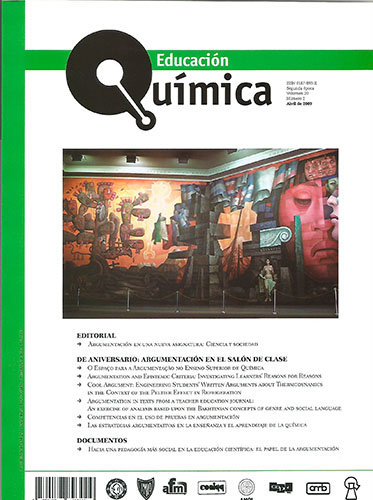Argumentación y criterios epistémicos: Investigación de las razones de los aprendices como razonamientos
Contenido principal del artículo
Resumen
The dominant practices in science are not discovery and justification but rather the broadening and deepening of explanations via theory development and conceptual modification. New tools, theories, and technologies are fundamentally changing the methods and inquiry practices of science. In turn, the forms of evidence and criteria for what counts as evidence change, too. The implication is the importance of including and understanding the epistemic and social practices embedded in the science learning goals critique and communication of scientific ideas and information. The study examines 11-year old students argumentation patterns and epistemic reasoning. The focus is on students arguments and choices as they pertain to reasons and evidence given to support claims about data and measurement. Results suggest that students are able to evaluate the quality of arguments made by classmates and can do so employing a number of different reasons or perspectives. An understanding of how students choose and use ev dence is important for understanding how to coordinate formative assessments and focus teachers feedback on students epistemic reasoning.
Detalles del artículo
Citas en Dimensions Service

Educación Química por Universidad Nacional Autónoma de México se distribuye bajo una Licencia Creative Commons Atribución-NoComercial-SinDerivar 4.0 Internacional.
Basada en una obra en http://www.revistas.unam.mx/index.php/req.




